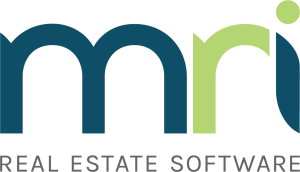 The role of the facility manager is broadening. While facilities teams have historically been siloed, they are now more than ever being tasked with objectives that require them to integrate with a wide range of business functions.
The role of the facility manager is broadening. While facilities teams have historically been siloed, they are now more than ever being tasked with objectives that require them to integrate with a wide range of business functions.
The challenge of achieving Net Zero targets touches every part of a business, and FM teams play a central role in supporting sustainability objectives. Regulatory requirements are becoming ever more complex, demanding access to a wider range of data to maintain compliance. Increasing customer demands and changing building usage patterns require teams to deliver an environment that adapts to the needs of its users in real time.
All of these objectives require information that would not be available in a traditional CAFM system. Making progress against Net Zero goals requires in-depth energy usage data. Maintaining compliance with the Building Safety Act or legionella, RAAC or asbestos regulations requires in-depth information on a building’s history, as well as the ability to collate this quickly for reporting.
Meeting customer demands in the face of unpredictable usage patterns requires a whole host of data, allowing buildings to be accessible on demand without wasting resources maintaining empty spaces. Facilities management data also has an important part to play in supporting the wider business, supporting property teams with the information they need to effectively manage their portfolios.
These objectives often stand in opposition to the ever-present requirement to cut costs. Traditional FM operational approaches may be able to rise to the challenge of delivering against more complex requirements, but not without significant increases in resource and inflated costs.
Karl Broom, Sales Director at MRI Software claims: “Calendar-based maintenance processes perform poorly when usage patterns are unpredictable, and keeping up with regulatory and wider organisational reporting demands can quickly become a full-time job. Manually trawling through billing and submetering data to identify energy saving opportunities is borderline impossible.”
He then explains: “To achieve efficiency savings whilst meeting these new organisational demands, facilities managers need a smarter, technology-focussed approach; one that provides the insights they need to design effective processes, then automates as many aspects as possible to drive efficiency. This means not only broadening the quantity and types of data that FM teams have access to but ensuring it’s possible to combine it in new ways to gain a new perspective.
“Some types of data are only useful when they’re overlaid with other information. Understanding trends in energy usage data, for example, is only applicable in the context of how and when a building and equipment is being used. Correlating energy usage data against footfall analytics can identify when equipment is running unnecessarily, indicating faults or waste which could be addressed to reduce consumption and cut costs.
“Once we have the ability to overlay different data sets in this way, we can also leverage technology to automate processes. For example, footfall data can be used to trigger HVAC or lighting systems in real time, and sensors can detect when equipment requires maintenance and automatically schedule tasks for teams.”
Karl Broom says: “At MRI we’ve long advocated for an open and connected technology approach. Recognising that data is at its most powerful when it can be infinitely combined and correlated to draw out new and innovative insights, we’ve prioritised integration as a key feature of all our products.”
The MRI principle of AGORA (Greek for “meeting place”) is key to this; the concept that real estate data should be seamlessly accessible across teams and systems, with the ability to combine and report on it to draw out customised insights. For FM teams, this philosophy is key to moving beyond CAFM systems and accessing the smart data insights they need to thrive in an increasingly demanding environment.
 For more information on how MRI’s open and connected technology can support your organisation, contact MRI team today.
For more information on how MRI’s open and connected technology can support your organisation, contact MRI team today.
For more information visit www.mrisoftware.com/uk or email EMEASales@mrisoftware.com
-ends-
The view or information contained within these unedited press releases, are that of the company producing it and not necessary the views of kpm.




